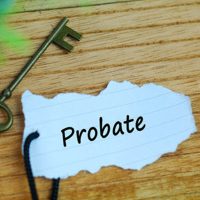Contesting A Creditor’s Claims In Probate Court

Losing a loved one is often a tragic occurrence involving a mix of confusing emotions. However, for creditors, the death of your loved one may be seen as more of a free for all. If a lender or creditor is using the probate process as an excuse to file false claims of debt, you do not have to sit idly by while your deceased loved one is taken advantage of. It is possible to contest claims without paying them from the decedent’s estate. To learn more, keep reading. Of course, the information provided in this article is general. If you would like feedback or information specific to your situation, the best course of action is to contact a Florida estate lawyer directly.
How Do Creditors Bring Claims in Probate Court?
After an individual passes away, their estate proceeds to probate court. In probate court, a personal representative is appointed to settle and administer the decedent’s estate. This process involves identifying and valuing all assets and property and using the decedent’s assets to settle any outlying debts or liens as well as state and federal taxes and other obligations of the estate. The remainder can be distributed to the decedent’s beneficiaries in accordance with either their will (if they have one) or Florida’s intestate succession statutes. Part of the process of settling the decedent’s estate involves determining what debts need to be paid and whether they are valid. In order to do this, creditors (people, companies, banks, etc. that the decedent owes money to) can file a claim with the estate. The personal representative for the estate must then determine whether the claim is valid and if the creditor is reasonably ascertainable.
How are Creditor Claims Determined to be Valid?
In order to determine whether a claim made by a creditor against an estate is valid, the personal representative must use reasonable due diligence in order to verify that the debt is real and in the amount alleged by the creditor. This often involves checking all available or accessible financial records of the decedent to verify that the debt occurred and that the amount is accurate. The personal representative should check the decedent’s bank statements, financial records, loan documents, and any correspondence with the lender. If the debt cannot be verified then the personal representative can contest its payment.
Contesting a Creditor Claim
If the estate’s personal representative challenges the creditor’s claim, they must notify the creditor within the later of 4 months from the date of publication of the Notice to Creditors or 30 days of the creditor’s claim having been filed with the court. The creditor can then choose to fight the objection by filing a lawsuit against the estate in civil court. This will require litigating the matter, which may result in delays when it comes to settling the estate and distributing its assets. To learn more about litigating a creditor claim, consult directly with a Florida estate attorney.
Contact Mark R. Manceri, P.A. Today
If you have recently lost a loved one and want to make sure that their assets are protected against invalid creditor claims, contact Pompano Beach estate & trust litigation lawyer Mark R. Manceri, P.A. today to schedule a consultation.
Source:
leg.state.fl.us/statutes/index.cfm?App_mode=Display_Statute&Search_String=&URL=0700-0799/0733/Sections/0733.705.html

 Mark R. Manceri, P.A. is a boutique law firm that specializes in Estate, Trust and Guardianship litigation. These matters include Will and Trust contests involving lack of capacity, undue influence, forgery, improper execution and tortious interference...
Mark R. Manceri, P.A. is a boutique law firm that specializes in Estate, Trust and Guardianship litigation. These matters include Will and Trust contests involving lack of capacity, undue influence, forgery, improper execution and tortious interference...